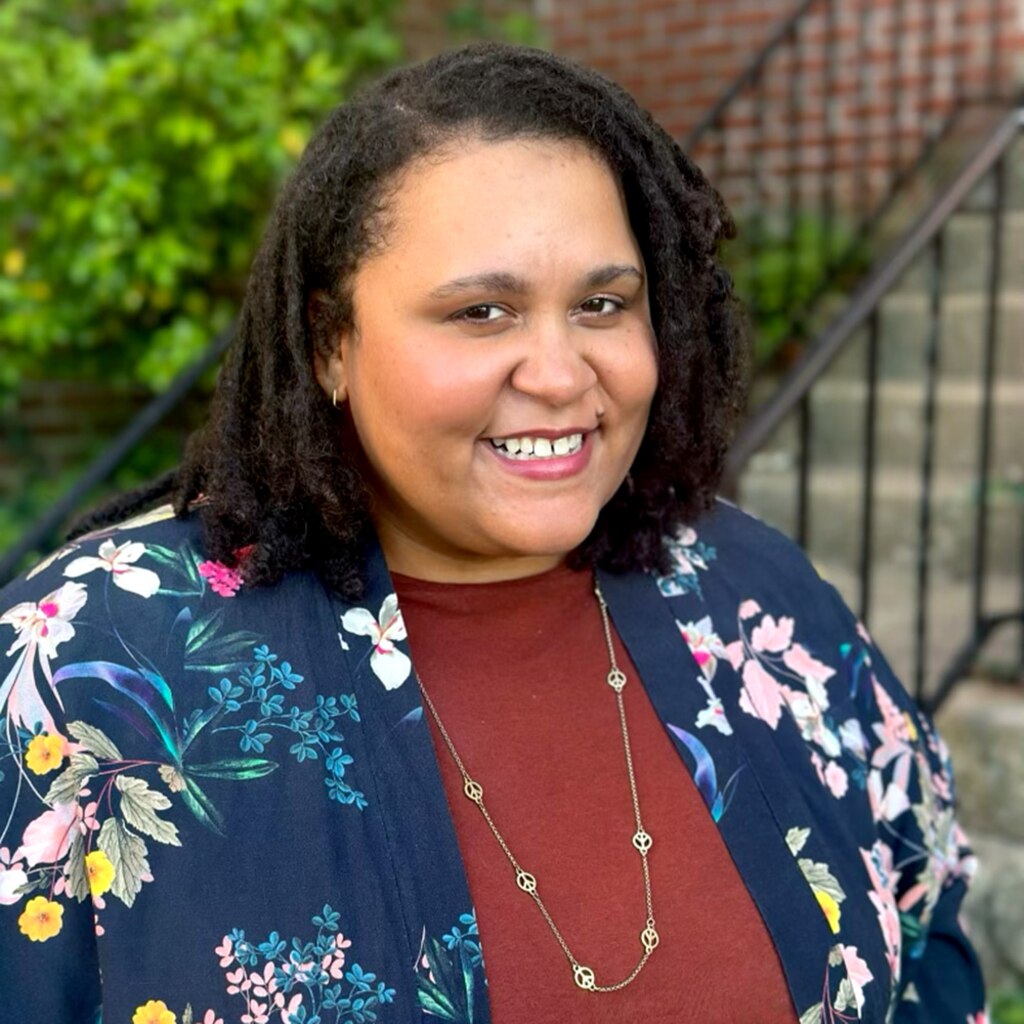As a Black and Indian woman and former prosecutor-turned-politician, Wanika Fisher has been dubbed the Kamala Harris of Maryland. The two, who share many of the same viewpoints on issues, are even part of the same sorority.
So, when Donald Trump questioned the racial identity of Harris this summer — asking “is she Indian or is she Black?” in a room filled with Black journalists in Chicago — Fisher also couldn’t help feeling attacked.
“When you don’t even respect someone’s existence, how do you think they will respect your issues or everyday problems?” said Fisher, who is a Prince George’s County Council member. “That’s what diverse communities are thinking. They are like, ‘Damn, you really don’t give a damn.’”
Trump’s comments reopened centuries-old debates and discussions the role of race in American life. Racial identification has been a way to classify, divide and discriminate against segments of the population dating back to the founding of the United States. It has been used to determine land ownership, voting rights and freedom. And for some, Trump’s words reminded them of that.

Those who identify as multiracial in the United States more than tripled from 9 million in 2010 to 33.8 million in 2020, according to the 2020 Census, as the agency allowed people to choose from more options for race and identity. The multiracial population grew by 164%, cumulatively, for every age category, the census shows.
The 65-and-older age category had the largest percentage change (670.4%), while the 18-44 age category had the largest numeric increase (9,535,241), growing by 300%. The growth shows no signs of slowing, as multiracial people are also the youngest of any race group — those who reported two or more races accounted for 32.5% of respondents under age 18 in 2020.
Maryland’s multiracial population has seen a big boost since 2020, to the tune of nearly 52,000 new multiracial residents. There are now around 534,000 people who identify as multiracial in the state. Of those, almost two-thirds are at least 18 years old and multiracial adults now make up about 7% of Maryland’s electorate.
Trump’s attack on Harris’ identity will “absolutely haunt” him with mixed-race voters, said Jé St Sume, an assistant professor of political science at the University Maryland, Baltimore County.
Trump raised his political profile by fueling the birther debate against former President Barack Obama, questioning the president’s birthplace despite unassailable evidence Obama was born in Hawaii. St Sume said using that same strategy against Harris in 2024 will likely backfire for Trump, as more people now identify as mixed-race.
Social scientists have shown that mixed-race people are more tolerant of other racial groups than their monoracial counterparts, St Sume said.
“They are more open to other people, and they look for that openness in people they want to support. Trump’s attempt at criticizing Kamala Harris is completely counter to that. They won’t be tolerant of it,” St Sume said.
The attack on Harris particularly stung Ally Waldon.
“When you are biracial or multiracial, race is intensely personal,” said the 37-year-old Hamilton resident, who identifies as biracial and is perceived by others as being a Black woman, which is “totally fine” by her.
“Culturally, it is more complicated because yes, I identify as Black, but I am also a biracial person with European heritage. Nothing is cut-and-dry,” the educational bookseller and writer said. “Trump’s comments denying Harris’ heritage has definitely reminded me of things people have said to me in the past.
“I shouldn’t have to explain or ‘prove’ my Blackness or embody every aspect of my Finnish heritage in order to be those things.”
Multiracial people — particularly when Black ancestry is part of the equation — have a complicated history in America.

For a number of biracial and multiracial people who present as Black or primarily exist in Black culture, the attack on Harris’ Blackness brought back years of struggle and painful memories.
Others point to the hypocrisy of Trump — a white man — questioning Harris’ Blackness when white people created and operated on a ‘one-drop rule,’ which essentially says that in America you are considered Black when you come from any Black lineage.
Black voters have proved influential.
Barack Obama proved that a Black presidential candidate was electable. In 2020, Black support in South Carolina’s primary resurrected Joe Biden’s presidential run. Both Harris and Trump realize that they will win or lose based on their level of support from Black voters.
Trump’s efforts to undermine Harris’ Blackness — particularly among the Black men Trump is hoping to coax away from voting Democratic — fell flat in part because of his limited views of Black America, said Amanda Lewis, director of the Institute for Research on Race and Public Policy at the University of Illinois Chicago.
“He said that to a group that has a more sophisticated sense of their identity than he gave them credit for,” Lewis said. “Black folks in general have a complex understanding of race and identity and have no problem seeing that she could be both Black and South Asian at the same time.”
But not everyone was able to see past the limited view Trump tried to perpetuate.
When Janet Jackson later echoed conservatives’ false claims about the race of Harris’ father, she was met with ire and a media frenzy that resulted in The New York Times publishing a piece addressing the controversy.


Lewis, who is white and the mother of a biracial daughter who identifies as a Black woman, said Harris has done a good job of embracing her heritage.
“She occupies it in a really graceful way. She embraces all her people. And refuses that there is a contradiction, and that she needs to clarify things,” Lewis said. “It has shaped her experiences in a way that is affirmative. These are the types of things that we should embrace and talk about.”
Marylander Allison Duggan has turned to her artistic side in dealing with white family members who live in Michigan and support Trump.
Duggan has created a series of caricatures inspired by political developments and posts them on social media, where she knows some of her Trump-supporting family members will see them.
“Midwestern culture tends to be polite and nonconfrontational. And that’s not the East Coast way. That is a dialogue that I have. When I share those things, it is directly to them,” said the 42-year-old Harwood resident, who is Black and Irish American and identifies as Black Irish.
Duggan has been energized to do so by Trump’s attack on Harris’ identity.
“She has the right to identify how she wants to. According to the racial construct of the United States, she is Black,” she said. “People think we have the options to be in spaces and flip who we are, which is not true.”

Stacey Antoine, 38, said Harris is inspirational to him and to countless other people of color.
“She’s already inspiring younger youth. She will inspire a nation for a long time. And she’ll inspire people of color whether they are Black or biracial,” said Antoine, who identifies as a mix of Black and white.
Fisher, a former member of House of Delegates and assistant majority leader, plans to stump for Harris in Pennsylvania and Alsobrooks in Maryland.
“This guy does not care that our story exists,” she said about Trump. “My story is an American story. That’s why I think that they are fighting for this. They are fighting for the magic that is America. It definitely can be messy and crazy, but there is goodness and light in it.”
Ultimately, Harris’ identity will be an asset with multiracial voters, St Sume said.
“They will feel more confident that they will be more attentive to their concerns,” St Sume said. “They are more tolerant of women in leadership, and nontraditional people in leadership roles. ... She represents the type of progress that they want to see.”
Data reporter Ramsey Archibald contributed to this story.



Comments
Welcome to The Banner's subscriber-only commenting community. Please review our community guidelines.